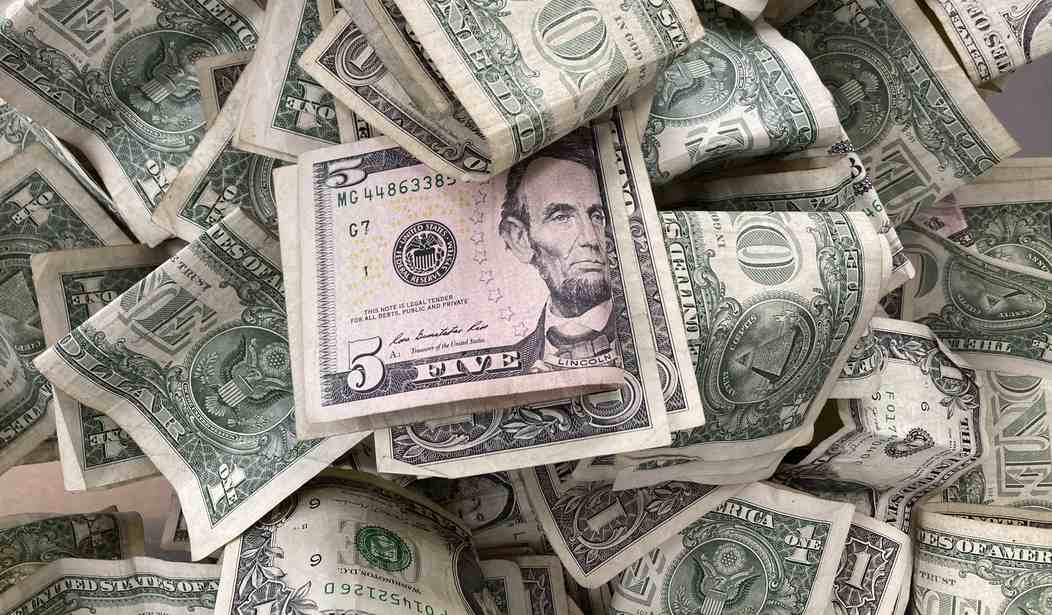On December 7, 2023, our nation observed the 82nd anniversary of the Japanese attack on Pearl Harbor, which brought the United States into World War II. After Pearl Harbor, President Franklin Roosevelt gave a speech describing December 7, 1941, as a “date which will live in infamy.” At that time, our national debt was $49 billion.
Although the attack and subsequent war brought hardship to our nation, they also united people in a common cause. Many people volunteered to serve in the armed forces, and millions of others organized things at home to ensure that our farms and factories produced the food and materials needed to fight the war. Because of their huge response, this generation became known as “the greatest generation.” We continue to honor their service, as we also honor the men and women who are serving today, whether in our military, law enforcement, or in some other way.
As we continue to honor those who serve, we should also be mindful of how much things have changed since the end of WWII in 1945. An article on the National WWII Museum website states, “World War II transformed the United States from a midlevel global power to the leader of the ‘free world’.” Although the United States certainly paid a price for the war in terms of human life, our main adversaries during the war (Germany and, to a lesser extent, Japan) experienced extensive infrastructure damage in addition to the lives lost. In fact, things were so bad in Germany and surrounding European countries that the U.S. embarked on the Marshall Plan in 1948 to help those countries rebuild. Similarly, the U.S. also assisted in the rebuilding of Japan after the war. In providing this help, United States officials hoped not only to bring about conditions that would allow for long-term peace and prosperity but also to deter the spread of Soviet Union-style communism, a real threat at the time.
Recommended
As we look back now, we know that these efforts were successful. Not only did peace and democracy take hold, many of these nations were also able to get their economies back to the point where they became quite prosperous. This is certainly true in Germany and Japan, both of which are among the top 4 economies in the world today. Although the U.S. still has the largest economy in the world in terms of gross domestic product, poor budget decisions that have gotten increasingly worse in recent years progressively threaten our continued prosperity.
This article was written on Pearl Harbor Day in 2023. This date was chosen because of its significance - a terrible day that led to people coming together to overcome one of the greatest challenges our nation had faced up to that point. Just as war was the challenge of the 1940s, I believe our national debt represents the biggest challenge we face today. I hope we will come together to combat this problem in the same way our forebears came together to defeat the enemy in WWII.
Our nation is currently almost $34 trillion in debt. On average, the U.S. national debt represents over $100,000 per citizen and almost $260,000 per taxpayer. The sad fact is that this debt continues to rise each day, leading to our downfall if we do not begin to reverse this trend. From the founding of the United States in the 1700s until 1992, our total national debt grew to be just over $4 trillion, meaning that it took over 200 years for us to accumulate that debt. Since then, mainly in the last 24 years, we have accumulated over eight times as much debt, to the point where our national debt is now almost $34 trillion. This trend is not sustainable.
Our national debt has now attained the size of the combined economies of China, Japan, Germany, India, and the UK, which is $33.9 trillion. They all rank very highly in the overall economies of the world - two of which were countries that the U.S. and our allies defeated in WWII - and a third, the United Kingdom, which was an ally that we helped to rebuild via the Marshall Plan.
Another significant fact regarding these countries is that, according to Statista, every one of those listed are owed money by the United States as a result of our debt. Today, Japan is owed over $1.1 trillion of our debt, followed by China at over $821 billion, and the UK at over $662 billion, with India and Germany being further down the list in terms of the amounts they are owed. Think for a minute about the fact that the number one country to which we owe money is one that, although is currently an ally, attacked us and was defeated by us in WWII. China, which is the number two country, is a current adversary and seems intent on bringing us down and taking over the title of dominant world power.
While serving as leader of the former Soviet Union, Nikita Khrushchev said, “we will take America without firing a shot ... we will bury you!” Thankfully, his prediction did not come true during his time. This was due in large part to the American people’s spirit and our thriving economy. Unfortunately, although not saying so out loud, the leadership of the Chinese Communist Party consistently signals that their intent is the same as Khrushchev’s, to take over America without a hot war. Although our economy is still strong, our national debt is a burden that will eventually strangle our prosperity. If we don’t take steps to control it, it will eventually control us, and that is the outcome that China and our other adversaries on the world stage seem to be counting on. It is time for us to get serious about reducing our debt to make sure that such a situation never happens. The world needs a Ross Perot today. God bless his soul.
For more information, please visit www.joefromtexas.com.

























Join the conversation as a VIP Member